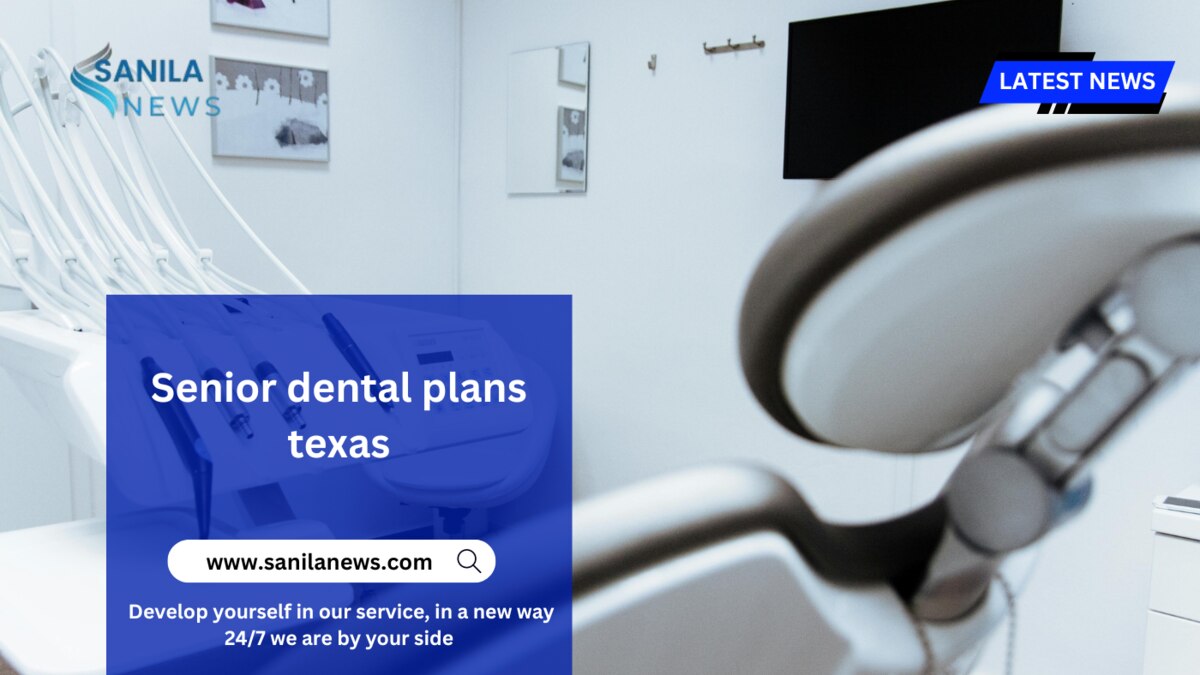Senior dental plans texas : A Comprehensive Guide
Senior dental plans texas As we age, dental care becomes increasingly important, but it can also become more challenging to afford. Senior dental plans in Texas are specifically designed to help older adults manage the costs of dental care, ensuring they can maintain their oral health without breaking the bank. This guide will delve into the various aspects of senior dental plans available in Texas, exploring options, coverage details, costs, and tips for choosing the right plan.
Why Dental Care is Crucial for Seniors
Oral health is a critical aspect of overall health, especially for seniors. Poor dental health can lead to serious medical conditions such as heart disease, diabetes, and respiratory infections. Common dental issues among seniors include tooth decay, gum disease, dry mouth, and oral cancer. Regular dental check-ups, cleanings, and treatments are essential to prevent these problems, but without proper insurance, the costs can quickly add up.
The State of Dental Coverage for Seniors in Texas
Senior dental plans texas Medicare, the federal health insurance program for people aged 65 and older, does not typically cover routine dental care such as cleanings, fillings, or dentures. As a result, many seniors in Texas seek out additional dental insurance plans to cover these services. There are several options available, each with its own set of benefits, costs, and coverage limitations.
Types of Senior dental plans texas
- Stand-Alone Dental Insurance Plans
Stand-alone dental insurance plans are designed specifically to cover dental expenses. These plans can be purchased independently or in conjunction with a Medicare Advantage plan. Some of the most common providers of stand-alone dental insurance in Texas include Delta Dental, Humana, and Cigna.- Delta Dental: Offers several plans with varying levels of coverage. Their PPO plans provide access to a large network of dentists, while their DHMO plans offer lower premiums with a more limited choice of providers.
- Humana: Known for its extensive network and flexible plans, Humana provides a range of options that cater to different needs and budgets. Their plans often include preventive care at no additional cost.
- Cigna: Cigna offers both PPO and DHMO plans, with options that cover everything from basic preventive care to more extensive procedures like root canals and crowns.
-
Medicare Advantage Plans with Dental Coverage
Some Medicare Advantage plans (also known as Medicare Part C) offer dental coverage as part of their benefits package. These plans are offered by private insurance companies and may include additional benefits such as vision, hearing, and prescription drug coverage.
- UnitedHealthcare: One of the largest providers of Medicare Advantage plans, UnitedHealthcare offers plans that include comprehensive dental coverage. Their plans often cover preventive services, basic procedures, and major dental work.
- Aetna: Aetna’s Medicare Advantage plans often include dental benefits, with coverage varying by plan. Some plans may offer an allowance for dental services, while others may cover specific procedures in full.
- Blue Cross Blue Shield of Texas: This provider offers Medicare Advantage plans with optional dental coverage. Their plans typically include preventive care and may cover more extensive procedures depending on the plan selected.
-
Discount Dental Plans
Discount dental plans are not insurance but offer discounts on dental services from participating providers. These plans usually require a monthly or annual membership fee and can provide significant savings on routine and major dental procedures.
- Careington: One of the leading discount dental plan providers, Careington offers plans that provide discounts on a wide range of dental services. These plans can be an affordable option for seniors who need regular dental care but do not want to pay for traditional insurance.
- Aetna Vital Savings: Aetna’s discount plan offers discounts on dental services, including cleanings, exams, and more extensive procedures. This plan is ideal for seniors who want to save on dental care without the constraints of traditional insurance.
-
Medicaid and CHIP Dental Coverage
For low-income seniors, Medicaid may offer dental coverage, though the extent of coverage varies by state. In Texas, Medicaid dental coverage for adults is limited, but some services may be available depending on individual circumstances. It’s essential to check eligibility and coverage details with Texas Health and Human Services.
What Senior Dental Plans Typically Cover
-
Preventive Care
Most senior dental plans in Texas cover preventive care services such as:
- Routine cleanings
- Oral exams
- X-rays
- Fluoride treatments
- Preventive care is often covered at 100%, meaning there is no out-of-pocket cost for the insured individual. Regular preventive care is essential for maintaining oral health and preventing more severe dental issues.
-
Basic Procedures
Basic procedures may include:
- Fillings
- Tooth extractions
- Periodontal treatment for gum disease
- Root canals
- Coverage for these services typically involves a co-pay or co-insurance, meaning the insured will pay a portion of the cost while the insurance covers the rest.
-
Major Procedures
Major procedures can be more expensive and may include:
- Crowns
- Bridges
- Dentures
- Implants
- Coverage for major procedures varies significantly between plans. Some plans may cover a significant portion of the cost, while others may only cover a minimal amount. It’s crucial to review plan details carefully to understand the coverage levels for major procedures.
-
Orthodontics
While orthodontic coverage is not typically a priority for seniors, some plans do offer coverage for orthodontic services, such as braces or retainers. This coverage is less common and usually comes with higher premiums.
Costs Associated with Senior dental plans texas
Senior dental plans texas The cost of senior dental plans in Texas varies depending on the type of plan, the level of coverage, and the insurance provider. Here are some common cost factors to consider:
-
Premiums
Premiums are the monthly or annual fees paid to maintain coverage. These can range from as low as $15 per month for basic discount plans to over $50 per month for more comprehensive coverage. Medicare Advantage plans with dental coverage may have higher premiums due to the additional health benefits provided.
-
Deductibles
The deductible is the amount the insured must pay out-of-pocket before the insurance coverage kicks in. Some plans have no deductible for preventive care, while others may have a deductible for basic and major procedures.
-
Co-Pays and Co-Insurance
Co-pays are fixed amounts paid for specific services, while co-insurance is a percentage of the cost of the service. For example, a plan might require a $20 co-pay for a routine cleaning or 20% co-insurance for a crown. Understanding these costs is crucial for budgeting dental expenses.
-
Annual Maximums
Many dental insurance plans have an annual maximum, which is the maximum amount the plan will pay for covered services in a year. Once this limit is reached, the insured is responsible for any additional costs. Annual maximums can range from $1,000 to $3,000, depending on the plan.
How to Choose the Right Senior dental plans texas
Selecting the right senior dental plan requires careful consideration of several factors:
-
Assess Your Dental Needs
Consider your current dental health and any anticipated future needs. If you have generally good oral health and require only routine cleanings, a basic plan with low premiums might be sufficient. However, if you anticipate needing more extensive procedures like crowns or dentures, a plan with more comprehensive coverage might be necessary.
-
Check the Provider Network
Ensure that your preferred dentist is in-network for the plan you choose. In-network providers have agreed to offer services at negotiated rates, which can result in significant savings. If you have a long-standing relationship with a dentist, it’s essential to verify their participation in the plan’s network.
-
Understand the Coverage Details
Review the coverage details for preventive, basic, and major procedures. Pay attention to any exclusions or limitations, such as waiting periods for certain services. Understanding what is and isn’t covered will help you avoid unexpected expenses.
-
Consider the Costs
Evaluate the total cost of the plan, including premiums, deductibles, co-pays, and co-insurance. Compare these costs with the coverage provided to determine if the plan offers good value for your specific needs.
-
Explore Discounts and Additional Benefits
Some plans offer discounts on services like vision care or hearing aids, which can be a valuable addition for seniors. Additionally, some insurance providers offer wellness programs or discounts on health-related products and services. These additional benefits can enhance the value of the plan.
-
Read Reviews and Seek Recommendations
Research the reputation of the insurance provider and read reviews from other seniors who have used the plan. Personal recommendations from friends, family, or your dentist can also provide valuable insights.
Conclusion
Senior dental plans in Texas offer a range of options to help older adults manage the costs of dental care. Whether you opt for a stand-alone dental plan, a Medicare Advantage plan with dental coverage, or a discount plan, it’s essential to carefully evaluate your options to find the plan that best meets your needs and budget. By understanding the types of plans available, the coverage they offer, and the costs involved, you can make an informed decision that ensures you maintain your oral health well into your golden years.
Taking the time to assess your dental needs, check provider networks, understand coverage details, and compare costs will help you choose the right plan. With the right dental insurance, you can enjoy peace of mind knowing that your oral health is protected, allowing you to focus on enjoying life to the fullest.
Last word
Keep an eye on our news channel Sanila News to get updated news regularly.

